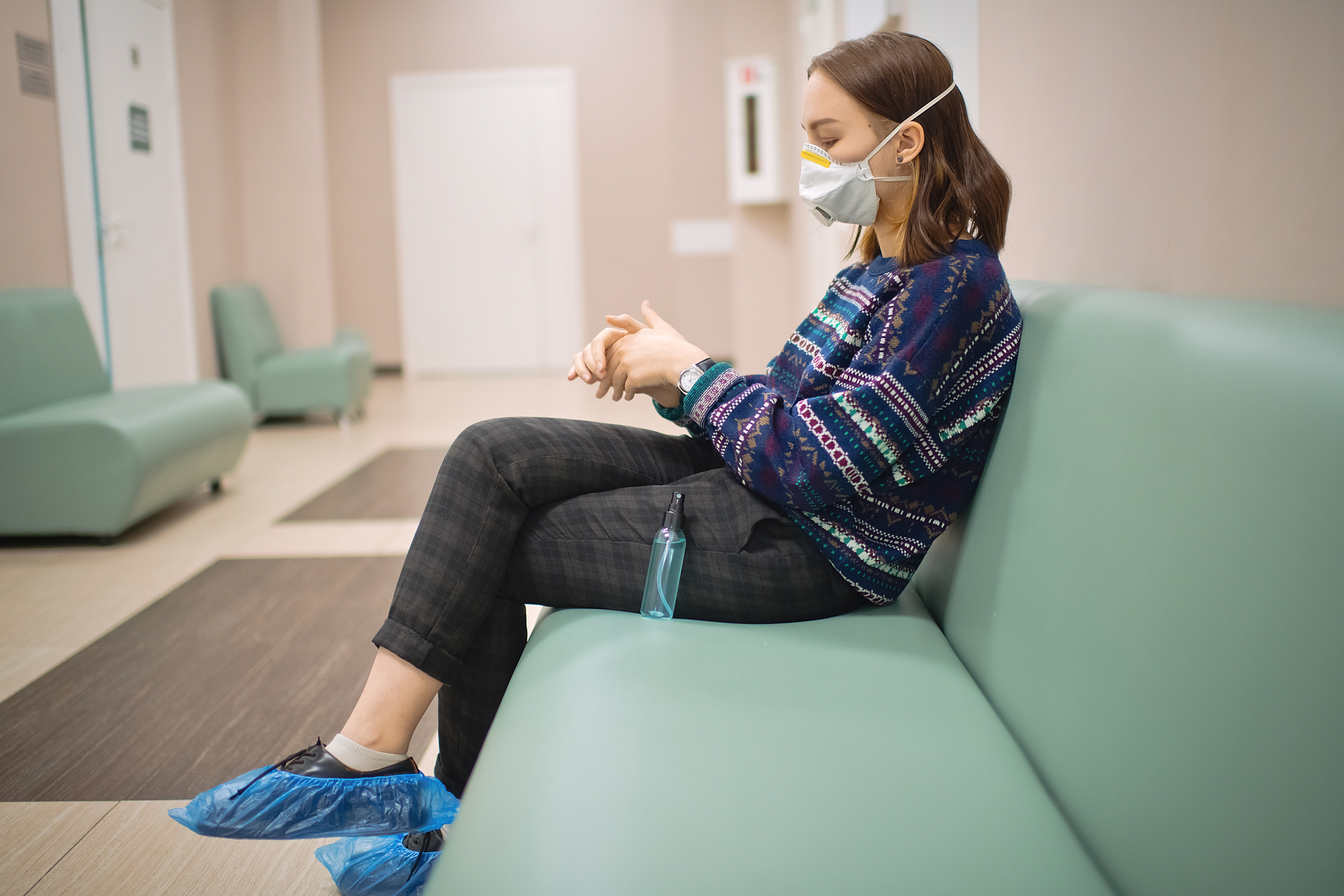As the COVID-19 pandemic continues, its toll has extended beyond physical and into the emotional realm. A recent study in JAMA Network Open suggested that the prevalence of depression symptoms in the United States was more than 3 times as great during the presence of COVID-19 as it was prior to the pandemic.¹ Americans are taking on a significant amount of stress right now.
The increased level of stress presents a particular challenge to patients with cancer. They are already enduring a significant health burden that is now compounded by being at increased risk for COVID-19. These patients have been founds to have a worse quality of life amidst the pandemic. Your patients may be dealing with added stress that could make them even more compromised. In addition to the physical things you may be doing in your office to prevent the spread of coronavirus (eg, cleaning and disinfecting after each patient visit, checking patients for symptoms prior to entrance, offering telehealth for nonessential appointments), the following are a few suggestions to help put your patients’ minds more at ease.
1. Explain the process in detail.
Because going to a hospital or physician’s office has so many new protocols to follow during the COVID-19 pandemic, the process could be disorienting to patients. It is helpful to prepare your patients so they know what they are in for when they arrive. When calling to confirm their appointment, explain to them in detail if they need to call the office from their car to alert the staff of their arrival, if they require screening for COVID-19 symptoms, if they will be having their procedure or examination conducted in a different room than usual, or any other factor that is out of the ordinary.
The process may still be disorienting, but knowing everything in advance allows your patients to better prepare for the experience and feel more in control of the situation.
2. Enforce social distance in the waiting room.
Social distancing is of course a necessity, and no doubt your office and waiting areas clearly instruct everyone to stay at least 6 feet apart with signs and markers. However, there is no guarantee that the orders will be followed as strictly as they should be. As a nurse, enforcing the distance isn’t just necessary for keeping everyone safe; it’s a good way to signal to nervous patients that they are safe in your office. At a time when patients with cancer are more concerned with their well-being than ever, they need you to show definitively that you have their safety at the forefront of your mind.
3. Communicate openly and empathetically.
An August 2020 study in JAMA Oncology examined the way oncologists communicate challenging situations to their patients during the COVID-19 pandemic.² Patients often reacted with anger and fear to the uncertainty surrounding how the pandemic could affect the prioritization of their procedures and their condition.
The Oncology Center of Excellence (OCE) of the US Food and Drug Administration reported that cancer patients with COVID-19 are at increased risk for hospitalization and mortality.³ Your patients are frustrated, and they are frightened. When talking with them, communicate with empathy and keep their emotions in mind. Answer their questions in a candid and open manner, and in a way that shows that you understand where that pain is coming from.
4. Make yourself available for telephone and video calls.
Telehealth has become a necessity to ensure safety of both patients and medical professionals. Although this technology may be beneficial for nonessential appointments, you may need to offer expanded availability to your patients. As the COVID-19 pandemic continues and protocols continue to change, building a rapport with your patients is crucial for helping them feel safe. Often, that can mean additional availability to chat with patients prior to or after an appointment to help them feel at ease. You may be your patient’s best resource for medical information, and that involves more responsibility during this challenging time.
5. Tend to your own mental health.
Ultimately, the best way to keep patients feeling safe and comfortable is if you feel that way as well. The emotional state of medical professionals has been devastated as a result of the COVID-19 pandemic, with nurses experiencing a significant amount of burnout and fear.⁴ Remember to put necessary effort into your mental health. Employ stress-reduction techniques, get a good night’s sleep, eat a balanced diet, and try to maintain your usual habits and activities to keep yourself centered.
In addition to the world of good it can do for your own mind, taking care of yourself can put you in a much better position to help your patients.
References
- Ettman CK, Abdalla SM, Cohen GH, Sampson L, Vivier PM, Galea S. Prevalence of depression symptoms in US adults before and during the COVID-19 pandemic. JAMA Netw Open. 2020;3(9):e2019686. doi:10.1001/jamanetworkopen.2020.19686
- Gharzai LA, Resnicow K, An LC, Jagsi R. Perspectives on oncology-specific language during the coronavirus disease 2019 pandemic: a qualitative study. JAMA Oncol. Published online August 06, 2020. doi:10.1001/jamaoncol.2020.2980
- FDA In Brief: Findings from real-world data study reveal higher risk of hospitalization and death among cancer patients with COVID-19, underscore health disparities News release. US Food and Drug Administration. Published July 22, 2020. Accessed September 4, 2020.
- Hu D, Kong Y, Li W, et al. Frontline nurses’ burnout, anxiety, depression, and fear statuses and their associated factors during the COVID-19 outbreak in Wuhan, China: a large-scale cross-sectional study.EClinicalMedicine. 2020;24:100424. doi:10.1016/j.eclinm.2020.100424
